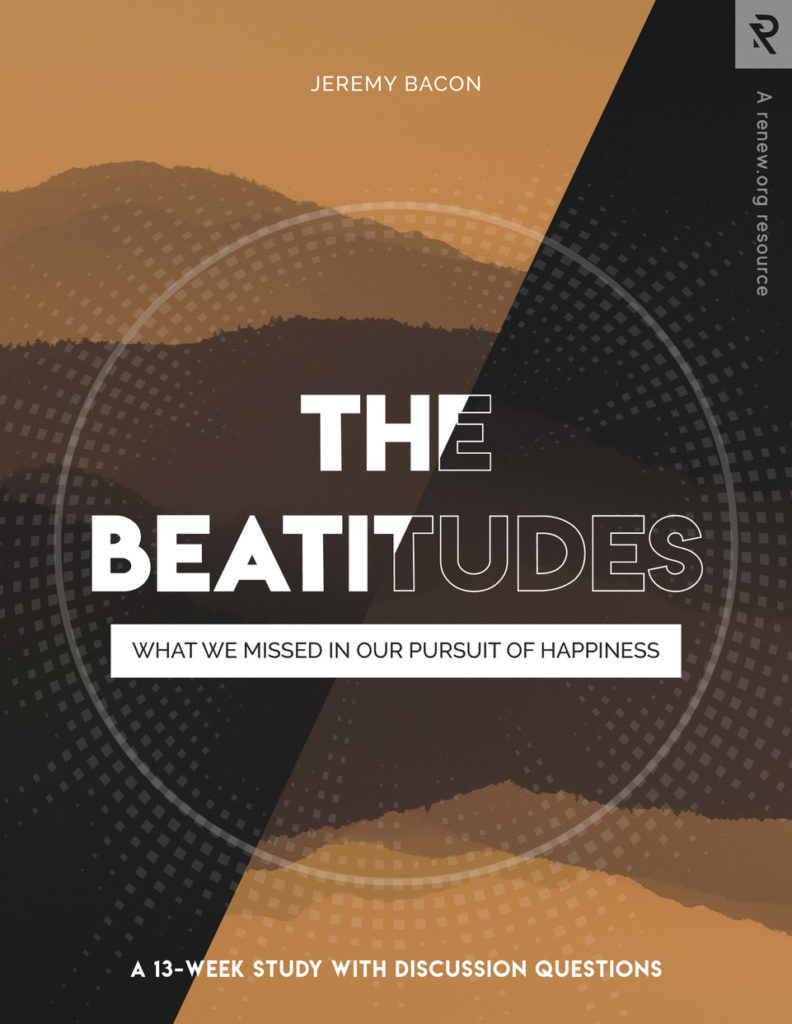
God Renews Youth, Covenants, and Things
God is a God who loves to renew things. Like what? Here are three.
God renews forgotten youth.
I’m not sure if you look back at your younger years with joy or sadness. Whatever our particular story, it’s true our earliest years are a time of great promise. Our youngest selves were trusting and hopeful. And then, for many people, that trust and hope collided with disappointment and cruelty. Enough disappointments, and a once shining trust will harden into a dull cynicism.
But God likes to renew things. And one of the things God likes to renew is our youth.
David wrote a psalm which says, “Praise the Lord, my soul . . . who satisfies your desires with good things so that your youth is renewed like the eagle’s” (Ps. 103:1, 5).
By renewing our youth, is David talking about the times before we grew up and got cynical? Or the times before we got old and our bodies started wearing out? Or those early years when we still dared to dream and hope?
Throughout the Bible, eagles are symbols of swiftness and new strength and soaring heights. The picture of renewing our youth like the eagle’s is a picture of being refreshed and recharged and ready to soar. Wouldn’t it be great to have your youth back, a time of undeterred hope and inexhaustible energy?
“Wouldn’t it be great to have your youth back, a time of undeterred hope and inexhaustible energy?”
The truth is that God wants to make you new again. And this isn’t just some motivational slogan; it’s the most concrete promise we have. For, according to the Gospel of John, to all who believe in Jesus, Jesus “gave the right to become children of God.” This is the new birth Jesus talked about, in which we are born again to a living hope and undying promise.
Renew us, O Lord.
God renews broken covenants.
You ever blown it—even after you’ve recommitted to not blowing it?
The line of kings from David onward was still ruling over the kingdom of Judah. But the kingdom was in danger of crumbling. After a series of godless kings, along came a king named Josiah who knew the nation was in trouble. This king’s grandpa had offered his son in a pagan sacrifice. Then, the king’s dad was such a lousy king that his own officials assassinated him in his palace. King Josiah wanted to do things differently.
So, King Josiah had his officials find the writings of God’s laws which had gone missing. When God’s laws were read to him, King Josiah wept and tore his robes. He gathered together the nation’s elders, priests, and prophets, went up to the temple, and before the people, they renewed their commitment to God:
“The king stood by the pillar and renewed the covenant in the presence of the Lord—to follow the Lord and keep his commands” (2 Kings 23:3a).
And yet, even after renewing their commitment, the very next king, Josiah’s son King Jehoahaz returned the nation to idol worship, and within a short time, the nation was finished, taken over by Babylon.
Have you ever recommitted to following God, but you just end up blowing it again? The good news is, even in the times we try and fail to renew our commitment to God, there is hope because we follow a God who still renews his commitment to us.
“Even in the times we try and fail to renew our commitment to God, there is hope because we follow a God who still renews his commitment to us.”
Out of the ashes of the old covenant, we find God making a new covenant with his people. A new covenant, the prophet Jeremiah promises, in which God says,
“I will forgive their wickedness and will remember their sins no more.” (Jer. 31:34b)
Sometimes we blow it. Sometimes we renew our commitment and then blow it again. However, as weak, fickle humans, there is still something we can do with confidence:
“Let us then approach God’s throne of grace with confidence, so that we may receive mercy and find grace to help us in our time of need” (Heb. 4:16).
Renew us, O Lord.
God renews all things.
You ever see yourself as the exception? If you tend to be arrogant, this could mean seeing yourself as better than others or above the rules. Other times, however, seeing yourself as the exception could mean thinking of yourself unkindly. You could think, well, I know the Bible says that God’s forgiveness is for everybody, but I don’t feel like he’s forgiven me. Or, I know God has a purpose for everybody, but I’m pretty sure I’m too messed up to be of much use to him.
On the other hand, we are talking about God. He’s got the power to do what he says he’ll do. And when he talks about grace and forgiveness, God likes to use words like everyone and whoever: For example, “everyone who calls on the name of the Lord will be saved” (Joel 2:32) and “whoever believes in him shall have eternal life” (John 3:16). That’s got to include you. There’s no reason to see yourself as the exception.
And the Bible is clear just how much God likes to renew things. What kinds of things? Well, how about all things?
“God likes to renew things. What kinds of things? Well, how about all things?”
Jesus was giving his disciples a preview of the end of history—how it all ends—and here’s how Jesus described it. He called it “the renewal of all things, when the Son of Man sits on his glorious throne” (Matt. 19:28).
The renewal of what things? Of all things.
In the original Greek language, here’s the fascinating word that gets translated into the “renewal of all things.” It’s the word palingenesia. Why’s that interesting? Well, it’s a word that’s made of two words: First is the word palin, which means “again.” Second is the word genesia. Does genesia sound familiar? It’s where we get the word Genesis. Genesis means “origin or birth.” So palingenesia basically means “the beginning again.”
Won’t that be great? In the end, everything that’s worn out, kicked in, used up, or run down is made new. God renews all things. The end is literally a beginning again. That’s why the last book of the Bible, Revelation, looks a lot like the first book of the Bible, Genesis. There’s a “new heavens and a new earth.” There’s a garden and a tree of life. And, best of all, there’s God and his people, in perfect relationship once again.
“In the end, everything that’s worn out, kicked in, used up, or run down is made new.”
And all includes you too, if you are willing. You are no exception to the power of God. Are you willing to be part of God’s renewal? To be made new each day by God’s powerful mercy?
If so, would you join us in praying with hopeful anticipation…
Renew us, O Lord.









